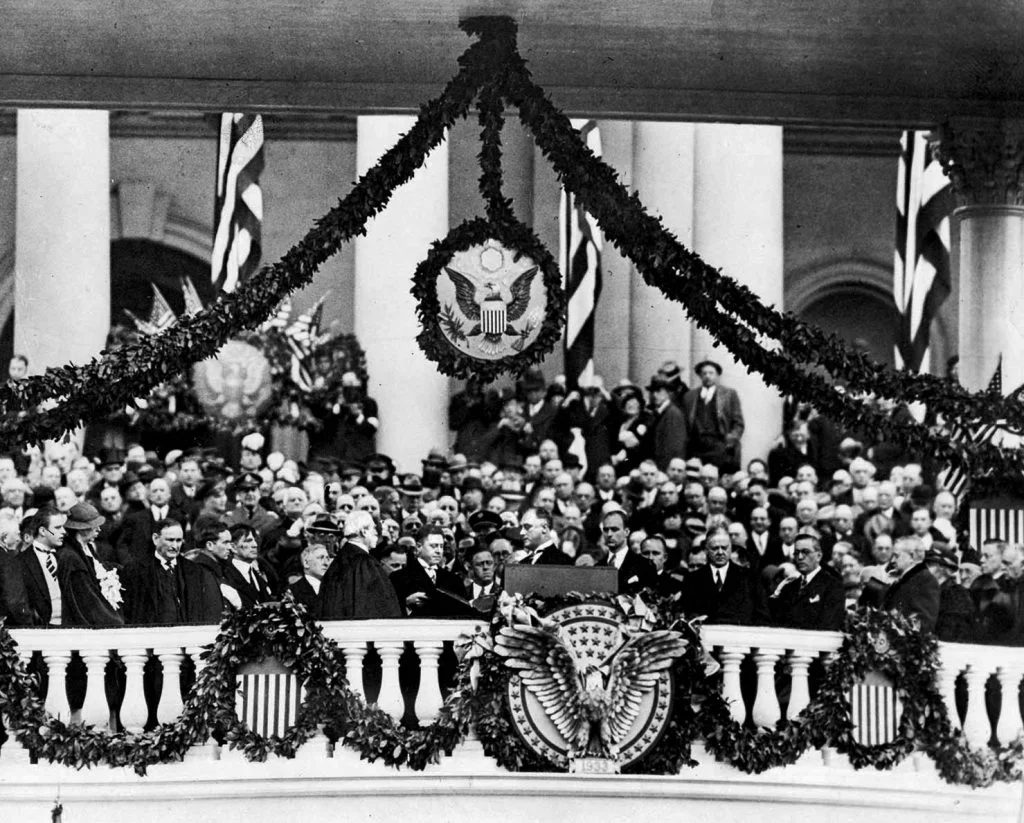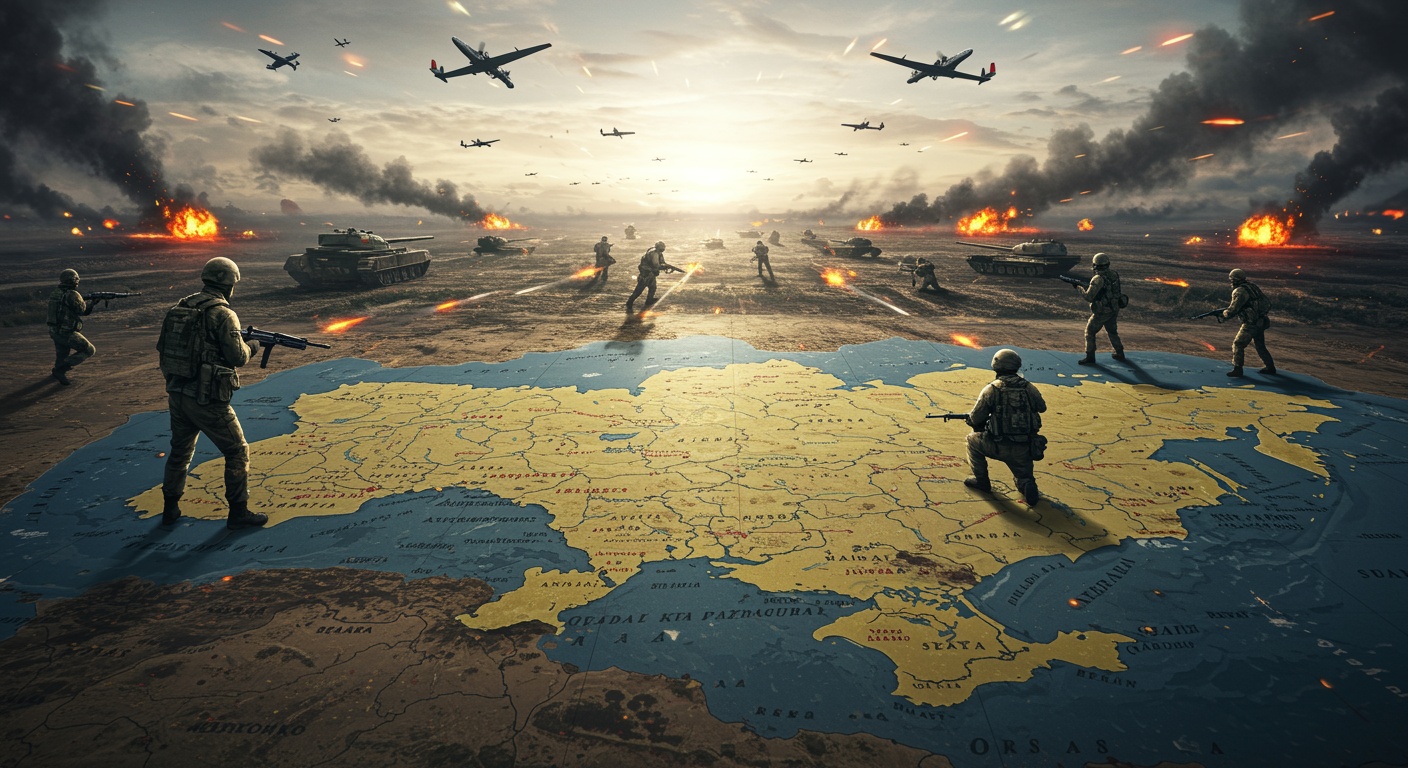
Can a Dithering Europe Stop Russia?
If Russia Wins is meant to move European public opinion away from its dangerous insouciance toward security threats.
Over the last decade, Russian forces have been wrecking the "wild fields" of Ukraine in what is now the largest war in Europe since 1945. In 2014, Russia annexed Crimea and conquered parts of eastern Ukraine. And in February 2022, it attempted to end Ukraine's independence with a full-out assault on Kyiv, which failed due to the unexpectedly strong and rapid response of Ukrainian forces. But the war continues along a lengthy frontline with thousands of casualties each month. The conflict has devastated Ukraine, has caused around 1,000,000 Russian casualties, and has created a highly explosive situation on Europe's eastern frontier.
Why does this war matter? One answer comes from a short book published in Europe by Carlo Masala, a German national security expert who teaches at the University of the Bundeswehr in Munich. The book titled If Russia Wins is a thought experiment rather than a comprehensive analysis of the ongoing war and its consequences, and it is meant to move European public opinion away from its dangerous insouciance toward security threats.
The book offers a scenario: it is 2028, a few years after Ukraine capitulated to Russia. Forced to cede some lands to Russia, Kyiv also had to accept a neutrality clause in its constitution and continues in a state of semi-independence, with vague Western promises of future aid. International peacekeepers (among them, Chinese forces, demonstrating a growing global heft, for the first time stepping on the European continent) are placed to man the dividing line between Russian occupied territories and what is left of Ukraine. Peace seems to be in place. But this is a de facto surrender of Ukraine: Russia has won, and knows it.
Europe is happily supine. Relieved that the war is over and returning to a mostly pro-Russian posture, most Europeans have lost interest in the Eastern frontier and criticize as dangerous warmongers all those who were supportive of Kyiv in previous years. There is great hope, indeed an expectation, of a profitable thaw in relations between Europe and Russia. Moscow sees this as a window of opportunity. Now ruled by a new, young leader but with Putin still in the background as the main decisionmaker, an emboldened Russia decides to continue its westward push. Supported by China, which creates mischief near the Philippines, drawing some US military assets into the Pacific, Russia attacks Estonia, conquering overnight the border city of Narva and the island of Hiiumaa off Estonia's western littoral.
At the same time, the plane of the head of Germany's largest defense manufacturer is shot down while there are explosions in a British port, home to its nuclear submarines. A small detachment of Russian special forces, delivered by a submarine, plants a Russian flag (with a bottle of vodka and a jar of caviar) on Hans Island, located between Danish Greenland and Canada, demonstrating the capacity to appear undetected on the North American continent.
All of this presents the NATO alliance with a dilemma: to respond or not to respond. The book describes potential debates among Western leaders, reflecting the public arguments made over the last few years by analysts and politicians. In a nutshell, the problem is this: Russia has attacked a NATO ally (Estonia), demanding, in theory, an allied response to defend it. But the attack is limited, both geographically (only a tiny piece of territory has been taken) and militarily (only a small force has been used by Russia)—and, above all, it was quick, establishing a fait accompli with the promise not to extend territorial gains. An allied response would involve, as the various generals point out in the scenario, not just a defensive posture in Estonia, which would take weeks to prepare, but also an attack on Russian bases providing logistics and threatening allied forces. A NATO response would escalate the war, which the Russians present as finished, having achieved its alleged objective of protecting some Russophone groups in Estonia.
The challenge for NATO, then, is a political one: who, among European and American leaders, is willing to launch a military action in defense of a small Estonian border town and a tiny island? The French president insists in meetings that the "situation is confused." Southern Europeans have no desire to send troops to the Baltic region, while the Mediterranean Sea sees another wave of immigrants. And ultimately, in Masala's scenario, the US President says he is unwilling to start World War 3 over an insignificant piece of land. Estonia, seeing that NATO lacks the needed unanimity, does not invoke Article 5 of the North Atlantic Treaty, the cornerstone of the alliance, which states that "an armed attack against one or more of [the allies] in Europe or North America shall be considered an attack against them all."
Russia's attack against Estonia remains, thus, unanswered, marking perhaps not a complete dissolution of NATO but certainly the end of its effective functioning. And with it, America's role as the great power preserving the equilibrium in Eurasia and thus as the decisive polity in the world is also finished.
The scenario is obviously fantastic but not improbable. Versions of it have circulated for some time among national security experts, so much so that Narva is now a well-known town. But it is interesting nonetheless that such a book has been published in Europe. Meant for wide public consumption (it can be read in an hour or so), written in an approachable style, and carefully avoiding overly melodramatic possibilities, the book is a symptom of a deep problem in Europe. As the author notes toward the end, European societies are not ready for war and, in fact, show no interest in it. Hence, they are eager to end the ongoing conflict between Russia and Ukraine, and, if the scenario comes true, will be pushing toward accepting the fait accompli of a minor Russian attack on an ally.
Europe has a hard time interrupting its Kantian dreams of eternal peace. Despite plenty of hard-nosed rhetoric over the last few years, very few European countries have embarked on a large-scale rearmament path. For most, there is a clear tradeoff between social peace and security, between welfare spending and rearming. To improve the latter would involve damaging the former. It is therefore preferable to avoid military escalation with Russia and hope that, sooner rather than later, a novel rapprochement with Moscow will be feasible.
To add to this European malaise, there is the American wildcard. The book puts the onus of the military response on the United States in the provided scenario. According to Masala, the American President (given that the scenario occurs in the spring of 2028, this would be Trump) refuses to respond militarily to what the White House interprets as a small, limited, and even justified Russian attack. The southern Europeans, Hungary, Slovenia, and France would then support such a decision.
Two thoughts on this part of the scenario. First, the vision of American abandonment is meant to incentivize Europeans to step up militarily. If they are left alone in 2028 without the American security umbrella, the argument goes they should really be serious about developing sufficient military capabilities to deter and, if necessary, repel a Russian attack. The author dangles the threat of American disengagement to induce Europeans to man up. This is, paradoxically, a logic that isolationists in the US espouse, arguing that Europe is freeriding on American security provision and that, if Washington stops defending them, European capitals will defend themselves.
Second, I find that logic overly optimistic and ultimately mistaken. As Masala points out, Europeans are themselves deeply divided on security issues. Except for the Central Europeans who are in the path of Moscow's imperial push and remember the tragedy of Russian occupation, the rest of Europe thinks it is at a safe distance from the Muscovite hordes. Whether the US is present or not, most Europeans will remain deeply skeptical of rearming and certainly are unlikely to send forces to Narva or the Suwalki Gap (the sliver of land between Poland and Lithuania through which the allies will have to march in aid of the Baltics) to engage Russian divisions.
Moreover, an equally plausible scenario is that the US, including President Trump, if we stick to the timeline of this book, would take a very different decision in the event of a Russian attack on a NATO ally and send a massive reinforcement force to Estonia to repel the Russian soldiers. There would be strong European opposition to such an action. One can imagine popular strikes in Italy (but only on Friday or Monday, as Italians tend to do) or German calls for peace or French demands for diplomatic mediation. In fact, there are even doubts whether, fearing Russian retaliatory strikes, Berlin would allow American forces to go through Germany.
But these are quibbles. The purpose of this brief book is not to offer a comprehensive analysis but to awaken a slumbering European public opinion. Many in Europe still think that a Russian victory in Ukraine will stabilize the continent and return it to the inevitable march toward peace. May there be more books such as this one in European bookstores!
Jakub Grygiel is a professor of politics at The Catholic University of America (Washington, DC), a senior advisor at The Marathon Initiative, and a visiting fellow at the Hoover Institution.
Politics
.webp)
Liberal Democracy Reexamined: Leo Strauss on Alexis de Tocqueville
This article explores Leo Strauss’s thoughts on Alexis de Tocqueville in his 1954 “Natural Right” course transcript.
%20(1).avif)
Long Distance Migration as a Two-Step Sorting Process: The Resettlement of Californians in Texas
Here we press the question of whether the well-documented stream of migrants relocating from California to Texas has been sufficient to alter the political complexion of the destination state.
%20(3).avif)
Who's That Knocking? A Study of the Strategic Choices Facing Large-Scale Grassroots Canvassing Efforts
Although there is a consensus that personalized forms of campaign outreach are more likely to be effective at either mobilizing or even persuading voters, there remains uncertainty about how campaigns should implement get-out-the-vote (GOTV) programs, especially at a truly expansive scale.

There's a Perception Gap With the U.S. Economy
As we approach another election cycle, it’s worth asking: what’s real, what’s political theater, and what does it all mean if Democrats regain control of the House?

International Law Is Holding Democracies Back
The United States should use this moment to argue for a different approach to the rules of war.
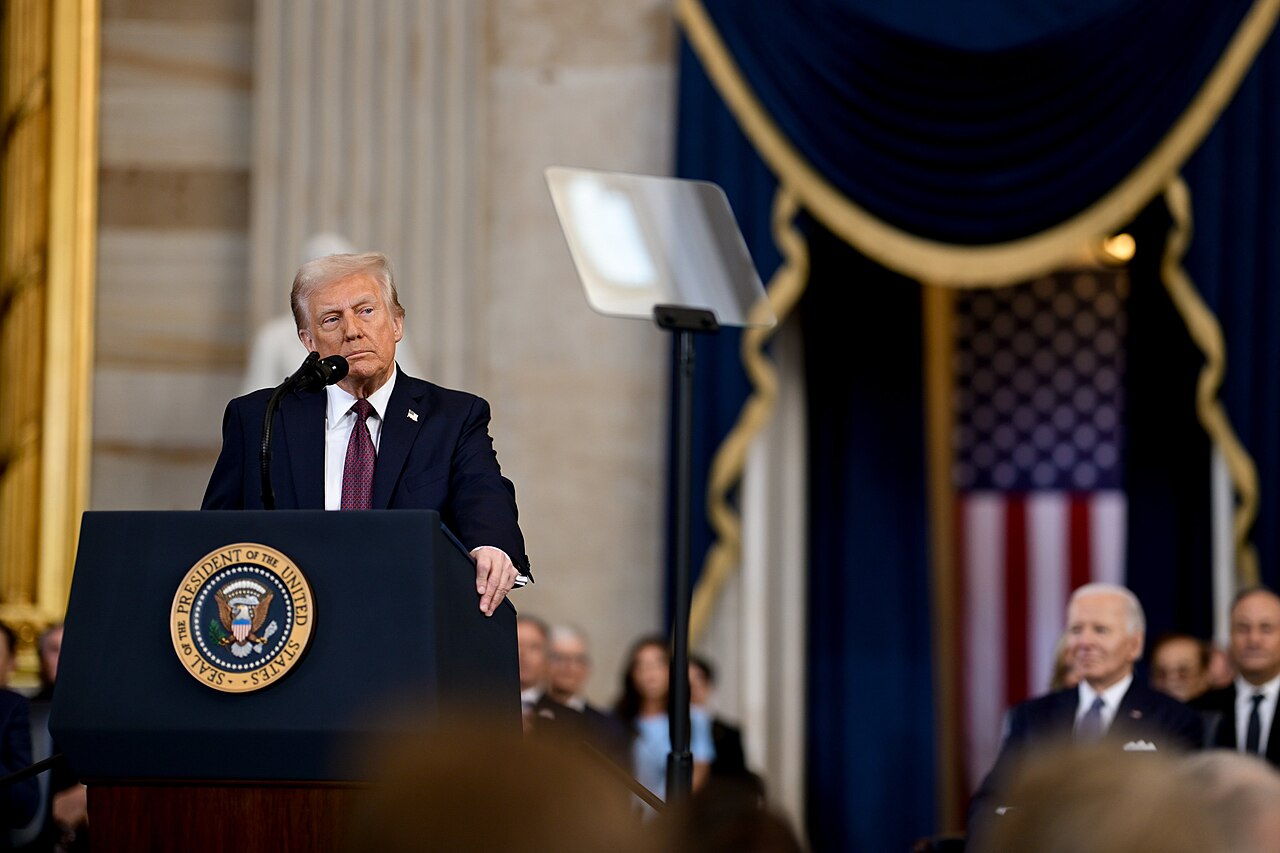
Trump purged America’s Leftist toxins. Now hubris will be his downfall
From ending DEI madness and net zero to securing the border, he’ll leave the US stronger. But his excesses are inciting a Left-wing backlash
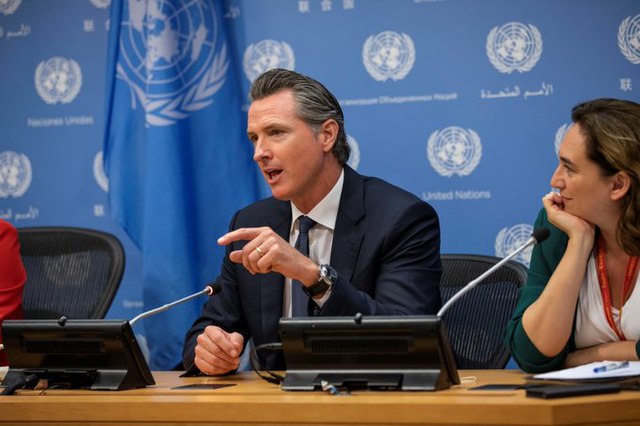
California’s wealth tax tests the limits of progressive politics
Until the country finds a way to convince the average American that extreme wealth does not come at their expense, both the oligarchs and the heavily Democratic professional classes risk experiencing serious tax raids unseen for decades.
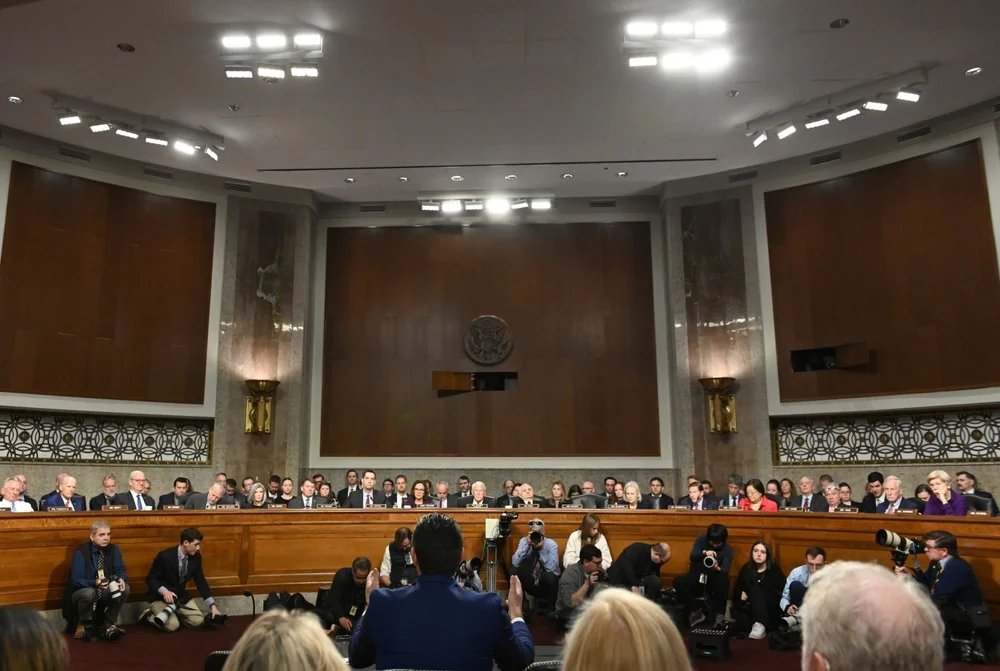
Storm Over the Appointment Process
This is not your grandfather’s appointment process; in fact, it’s not even your older brother’s.
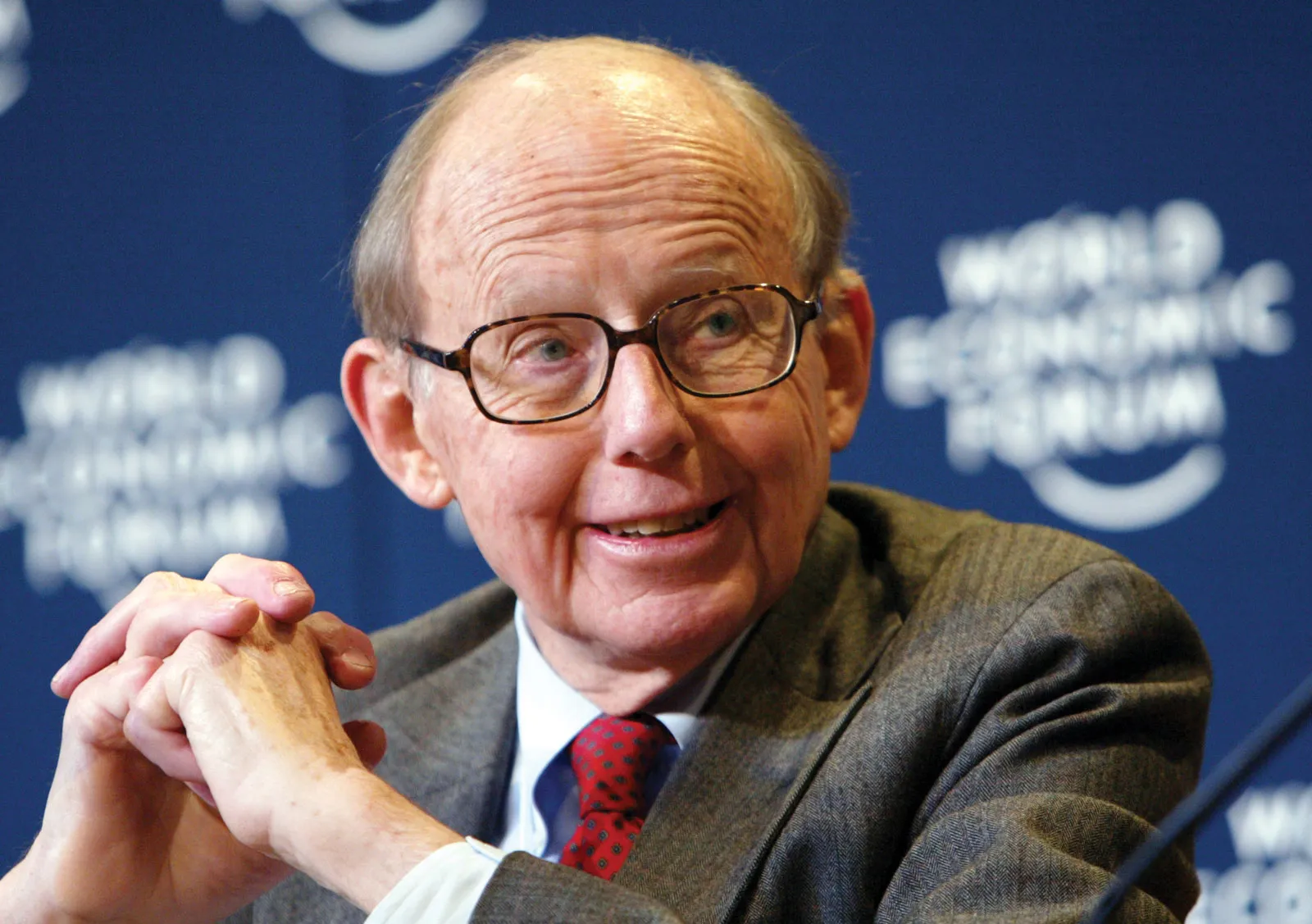
The Clash of Civilizations at 30
Three decades on, Huntington did not foresee the extent to which the West would erode, but he did perceive the warning signs.









